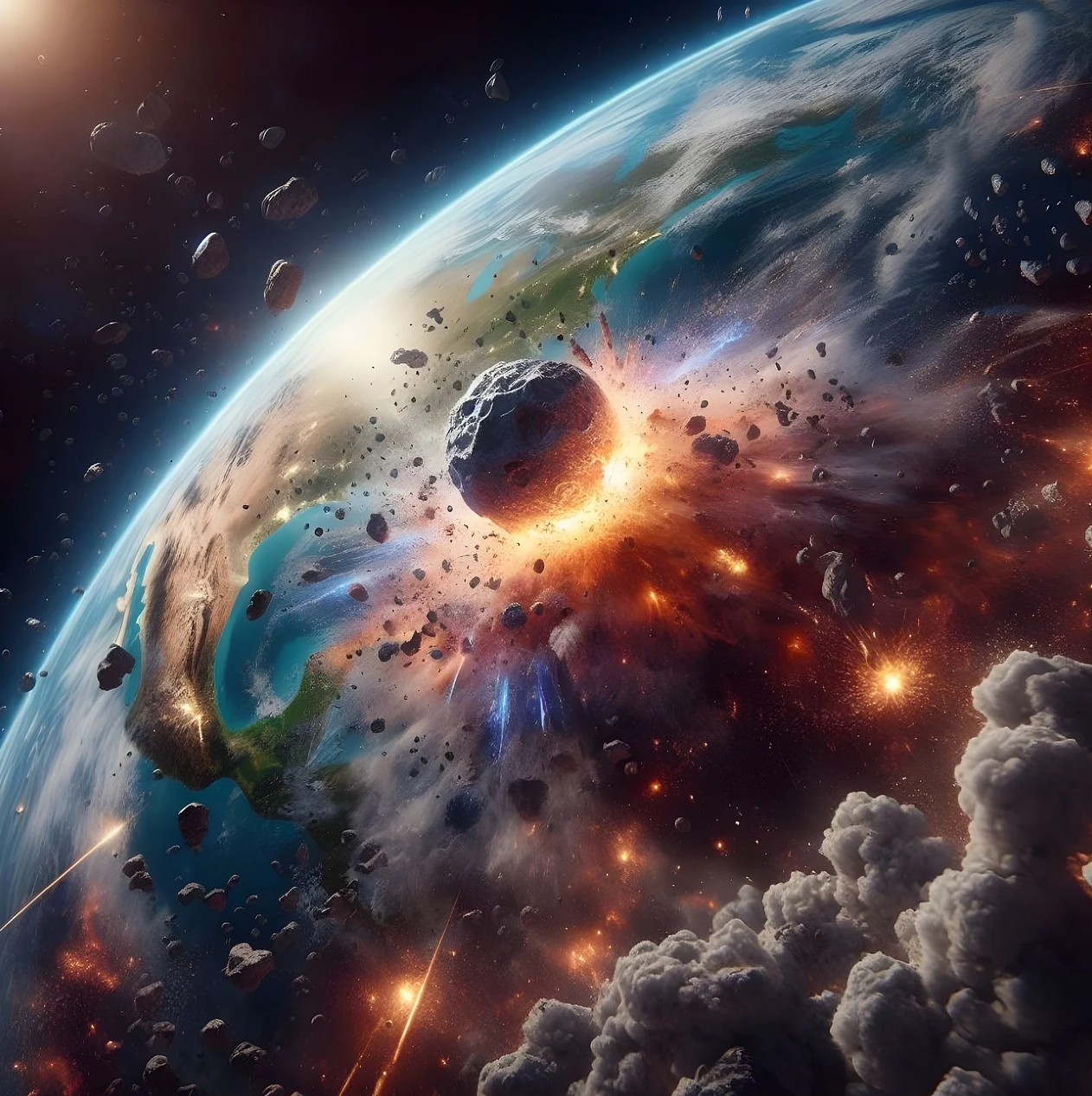The Extinction of the Dinosaurs and the Emergence of Mammals
(Published in the newspaper Amigoe on the 2nd of January 2025)
In the last article, we explored how life emerged from the ocean. From the sea, life spread to the land. Fish gave rise to amphibians, and amphibians gave birth to reptiles. The first reptiles split into two groups: mammals and egg-laying animals like dinosaurs, crocodiles, lizards, snakes, turtles, and birds. Dinosaurs ruled the Earth for a long time.
What are dinosaurs?
Dinosaurs are animals that originated from primordial reptiles about 250 million years ago. They laid eggs to have babies, just like reptiles. Some dinosaurs even had feathers! There were herbivores (plant-eaters) and carnivores (meat-eaters) among them. One famous carnivore was the Tyrannosaurus Rex. Dinosaurs came in all sorts of shapes and sizes. Some were huge, like 11 meters long and 30 meters tall!
Why were some dinosaurs so big?
Back in the dinosaur days, the climate was way warmer than it is now. And guess what? There was up to four times more CO2 in the air than there is today! Can you imagine? With all that extra CO2 and the scorching temperatures, plants grew way more lush than they do now. Dinosaurs with long necks that could reach the top of the trees had a feast to look forward to. They were like the ultimate foodies! In such a lush environment, being big was a big advantage for evolution.
Extinction of the dinosaurs
Dinosaurs went extinct 66 million years ago. What caused this? Around that time, a huge meteorite hit near Mexico’s Yucatan Peninsula. It was about 10 kilometers wide and hit at 72,000 kilometers per hour. The impact made a crater 180 kilometers wide, half in the ocean and half on land. The energy released was huge! Mexico caught fire instantly. Tsunamis were found all over the world.

Meteorite impact at Yucatan
The rocks at the impact site had sulfur-containing minerals. The meteorite hit, releasing a lot of sulfur dioxide into the air. Water vapor in the air mixed with the sulfur dioxide to make sulfuric acid. Sulfuric acid is super corrosive. It had two main effects. First, it made acid rain, which hurts plants and sea life. Second, it made a sulfuric acid mist in the air that blocked sunlight for years. This made it colder, and many plant species died. Dinosaurs didn’t have enough food, and they all went extinct. Not only the dinosaurs, but also all the big animals that needed a lot of food went extinct.
The emergence of mammals
You know, one man’s death is another man’s bread! After the meteorite hit, the big animals went extinct. But the smaller ones, which didn’t need as much food, survived on the leftovers. And guess what? Being small became a survival advantage!
A bunch of tiny critters survived the meteorite strike. After the dinosaurs went extinct, these little guys took over. Over the next 66 million years, they evolved into the mammals we see today. And guess who else joined the party? Humans, and eventually modern man. So, in a way, we owe our existence to a meteorite impact and the dinosaurs’ demise.
Are all the dinosaurs gone?
Dinosaurs are gone, but guess what? A bunch of smaller dinosaurs made it through the meteorite impact. And those are the birds! Birds are like the little cousins of dinosaurs. Back in the day, there were probably smaller ground-dwelling birds like chickens. So, birds are direct descendants of dinosaurs. In the beginning of the article, we mentioned that dinosaurs laid eggs and probably had feathers. And guess what? Birds still have feathers! Their skeleton and build are also similar to that of dinosaurs. Even flying dinosaurs had teeth! But today’s birds don’t have teeth. It seems like birds no longer needed teeth as they evolved.
Evolution and the emergence of mammals
Evolution is all about adapting to changes in the environment. When conditions shift, the species that are best suited to the new conditions thrive. The dinosaurs were the ultimate champions of their time, dominating the world due to their ability to find ample food. But when a massive meteorite struck, suddenly wiping out all food sources, the smaller species that could survive on little proved to be the true winners. Interestingly, the dinosaurs could have also adapted to a world with less food, but only if the change had been gradual. However, the sudden shift was catastrophic for them.
So, humans got to adapt too, right? Climate change is happening super fast, and it might be too late to make a big change now. But hey, let’s take action now! Remember what happened to the dinosaurs? They didn’t see it coming. We’re mammals, and we’ve got a chance to make a difference. Let’s seize it! Let's not negate this now! In the following article, we will go further into the evolution of man.
2. The Extinction of the Dinosaurs and the Emergence of Mammals